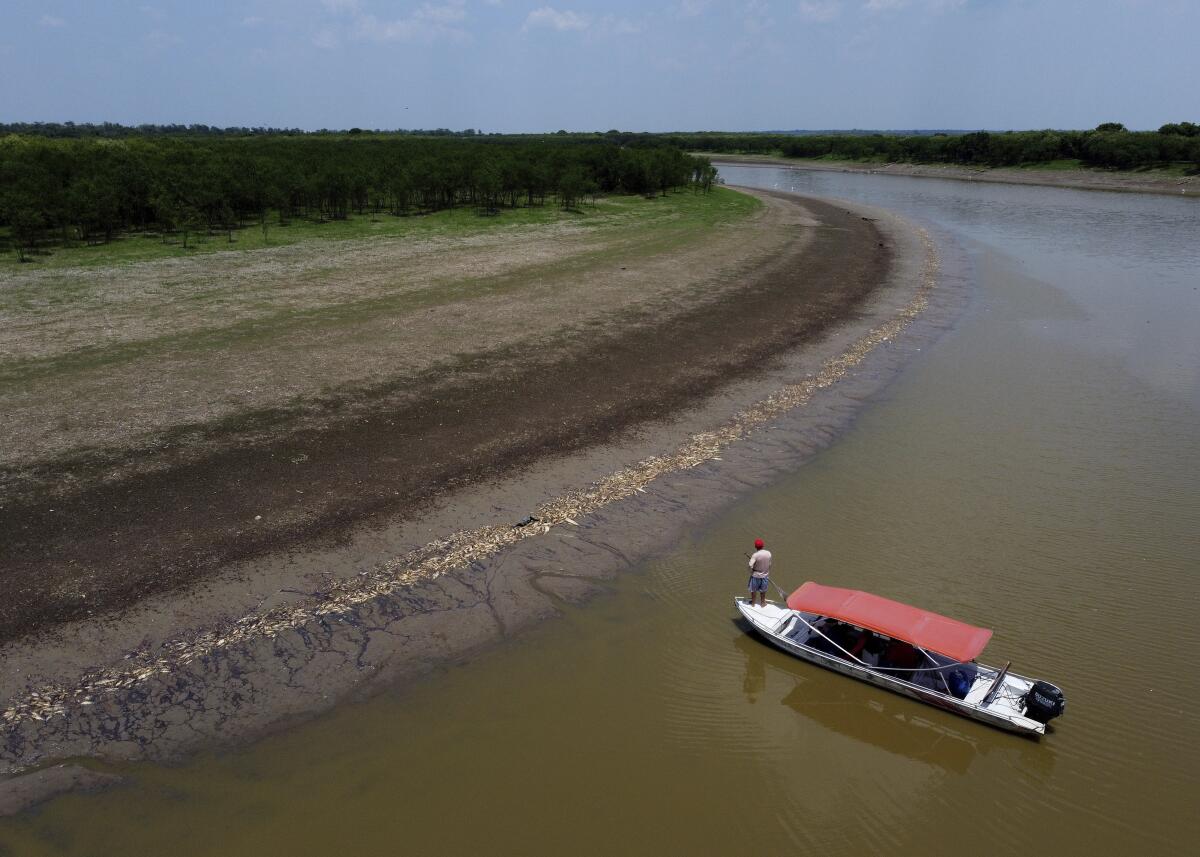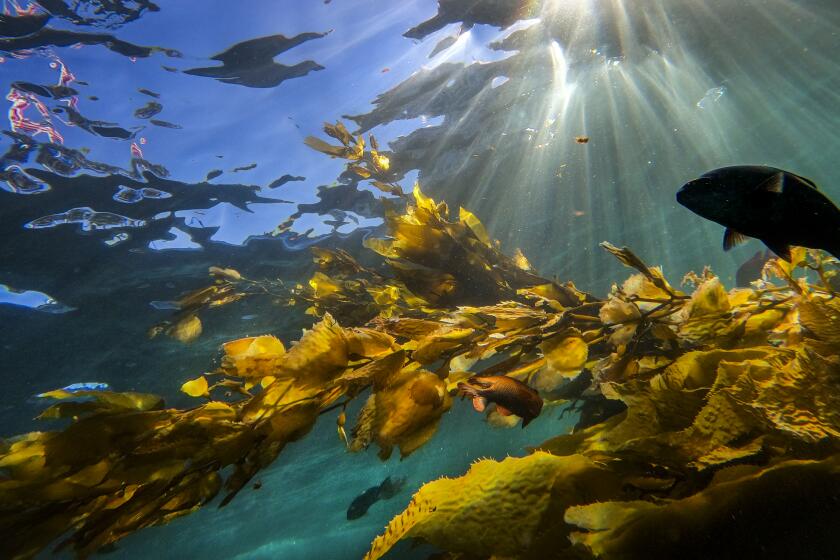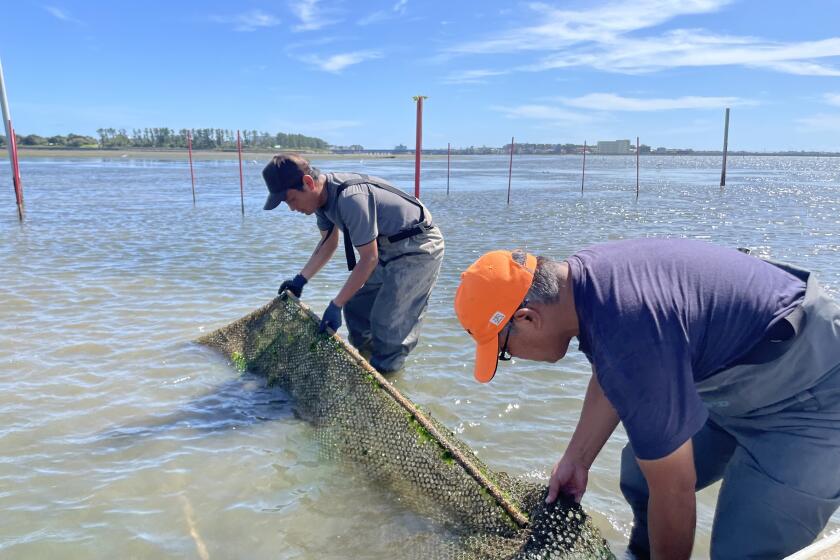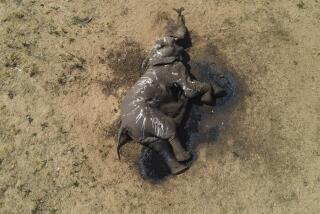More than 100 dolphins found dead in Brazilian Amazon as water temperatures soar

- Share via
SAO PAULO — More than 100 dolphins have died in the Brazilian Amazon rainforest in the last week as the region grapples with a severe drought, and many more could die soon if water temperatures remain high, experts say.
The Mamiraua Institute, a research group of Brazil’s Ministry of Science, Technology and Innovation, said two more dead dolphins were found Monday in the region around Tefe Lake, which is key for mammals and fish in the area. Video provided by the institute showed vultures picking at the dolphin carcasses beached on the lakeside. Thousands of fish have also died, local media reported.
Experts believe high water temperatures are the most likely cause of the deaths in the lakes in the region. Temperatures since last week have exceeded 102 degrees in the Tefe Lake region.
The Brazilian government’s Chico Mendes Institute for Biodiversity Conservation, which manages conservation areas, said last week that it had sent teams of veterinarians and aquatic mammal experts to investigate the deaths.
There had been some 1,400 river dolphins in Tefe Lake, said Miriam Marmontel, a researcher from the Mamiraua Institute.
“In one week we have already lost around 120 animals ... which could represent 5% to 10% of the population,” said Marmontel.
While satellites and offshore buoys can inform scientists about marine heat waves, the effects on ocean species are less understood.
Workers have recovered carcasses of dolphins since last week in a region where dry rivers have affected impoverished riverside communities and grounded their boats in the sand. Amazonas state Gov. Wilson Lima on Friday declared a state of emergency because of the drought.
Nicson Marreira, mayor of Tefe, a city of 60,000 residents. said his government was unable to deliver food directly to some isolated communities because the rivers are dry.
Ayan Fleischmann, the geospatial coordinator at the Mamiraua Institute, said the drought has had a major impact on the riverside communities in the Amazon region.
“Many communities are becoming isolated, without access to good quality water, without access to the river, which is their main means of transportation,” he said.
Japan’s fishing and seafood industry is under threat as warming sea temperatures spur changes in marine life behavior and migration patterns.
Fleischmann said water temperatures rose from 89 degrees Friday to almost 100 on Sunday.
He said that experts were still determining the cause of the dolphin deaths but that the high temperature remains the main candidate.
More to Read
Sign up for Essential California
The most important California stories and recommendations in your inbox every morning.
You may occasionally receive promotional content from the Los Angeles Times.












